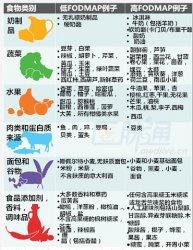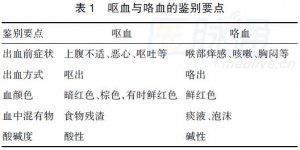肠道细菌产生的丁酸作为治疗炎性肠病有效疗法
近日,来自日本理化研究所的研究人员通过研究揭示了肠道细菌对机体免疫系统成熟的作用,相关研究刊登于国际著名杂志Nature上,该研究也为揭示丁酸可以作为治疗炎性肠病比如克罗恩病的有效疗法。
丁酸是肠道细菌消化膳食纤维后的一种副产品,其可以扮演表观遗传开关的作用,来通过诱导肠道中调节T细胞的产生从而增强机体的免疫系统功能。
此前研究揭示,患炎性肠病的病人机体中缺少产生丁酸的菌群而且其肠道中丁酸的水平较低;然而丁酸之所以可以抗炎性,因为其是结肠内壁细胞重要的能量来源,这项研究也是首次揭示了丁酸在产生调节性T淋巴细胞方面的角色。
文章中,研究者Hiroshi Ohno等人通过对小鼠模型进行调查揭示了共生微生物可以有效增强机体中调节性T细胞的数量;而共生细菌产生的丁酸,其作为一种短链脂肪酸可以促进机体中调节性T细胞的分化,而且也可以调节和天然T细胞分化有关的基因的表达。
研究者Hiroshi Ohno说道,当给患大肠炎小鼠模型的饮食中添加部分丁酸后,其机体中调节性的T细胞水平明显上升了,而且其疾病症状也明显有所改善。调节性T细胞对于调节机体过度的炎性反应以及自体免疫疾病非常重要,这项研究为研究者开发预防以及治疗炎性肠病的疗法提供了一定思路,当然丁酸疗法也是一种天然安全的疗法,其对病人的作用显而易见。(生物谷Bioon.com)
Commensal microbe-derived butyrate induces the differentiation of colonic regulatory T cells
Yukihiro Furusawa, Yuuki Obata, Shinji Fukuda, Takaho A. Endo, Gaku Nakato, Daisuke Takahashi, Yumiko Nakanishi, Chikako Uetake, Keiko Kato, Tamotsu Kato, Masumi Takahashi, Noriko N. Fukuda, Shinnosuke Murakami, Eiji Miyauchi, Shingo Hino, Koji Atarashi, Satoshi Onawa, Yumiko Fujimura, Trevor Lockett, Julie M. Clarke, David L. Topping, Masaru Tomita, Shohei Hori, Osamu Ohara, Tatsuya Morita et al.
Gut commensal microbes shape the mucosal immune system by regulating the differentiation and expansion of several types of T cell1, 2, 3, 4, 5. Clostridia, a dominant class of commensal microbe, can induce colonic regulatory T (Treg) cells, which have a central role in the suppression of inflammatory and allergic responses3. However, the molecular mechanisms by which commensal microbes induce colonic Treg cells have been unclear. Here we show that a large bowel microbial fermentation product, butyrate, induces the differentiation of colonic Treg cells in mice. A comparative NMR-based metabolome **ysis suggests that the luminal concentrations of short-chain fatty acids positively correlates with the number of Treg cells in the colon. Among short-chain fatty acids, butyrate induced the differentiation of Treg cells in vitro and in vivo, and ameliorated the development of colitis induced by adoptive transfer of CD4+ CD45RBhi T cells in Rag1?/? mice. Treatment of naive T cells under the Treg-cell-polarizing conditions with butyrate enhanced histone H3 acetylation in the promoter and conserved non-coding sequence regions of the Foxp3 locus, suggesting a possible mechanism for how microbial-derived butyrate regulates the differentiation of Treg cells. Our findings provide new insight into the mechanisms by which host–microbe interactions establish immunological homeostasis in the gut.
本站所注明来源为"爱爱医"的文章,版权归作者与本站共同所有,非经授权不得转载。
本站所有转载文章系出于传递更多信息之目的,且明确注明来源和作者,不希望被转载的媒体或个人可与我们
联系zlzs@120.net,我们将立即进行删除处理


